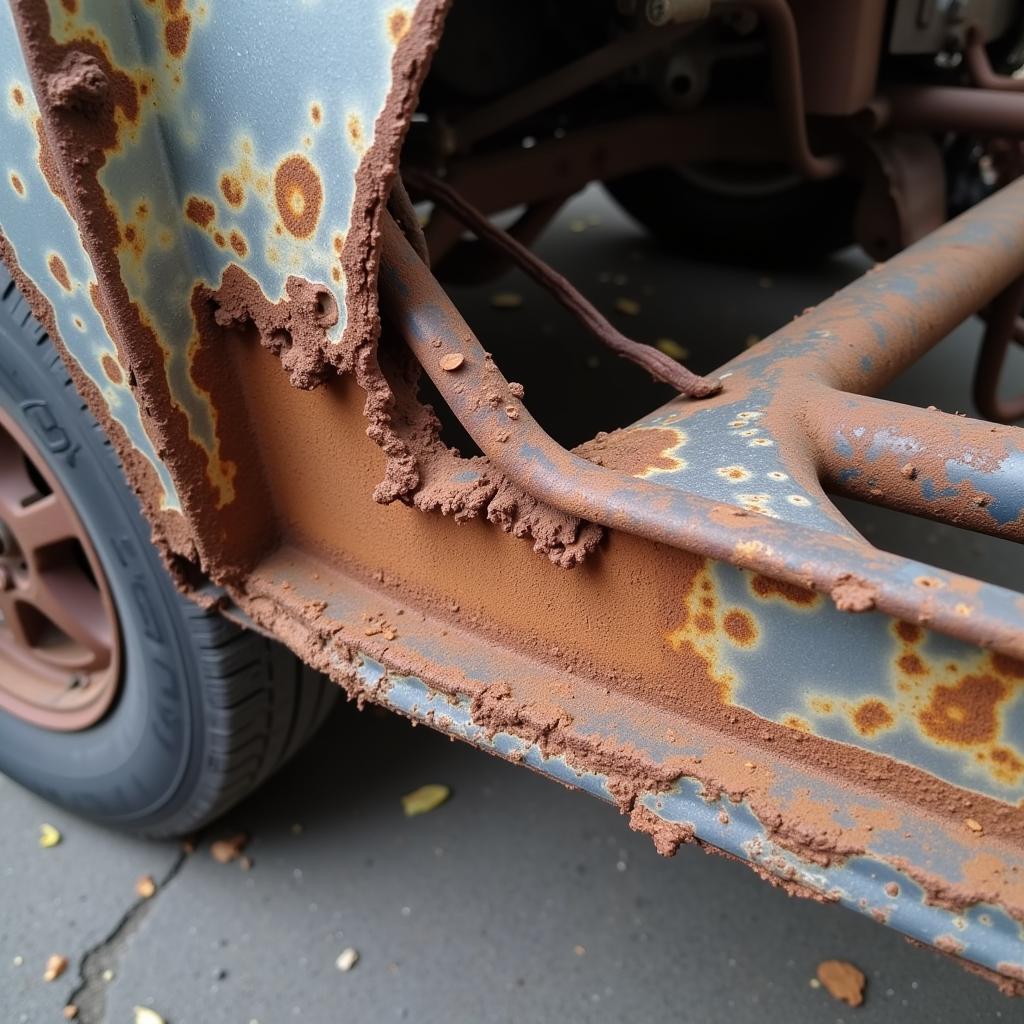Can I Use Silicone Caulk To Fix A Car Leak? This is a common question among car owners facing annoying drips and leaks. While silicone caulk might seem like a quick and easy fix, it’s crucial to understand its limitations and suitability for different car leak scenarios. Choosing the wrong sealant can lead to more extensive damage and costly repairs down the line.
Understanding Car Leaks and Sealant Options
Before grabbing that tube of silicone, it’s important to pinpoint the source and type of leak. Is it a coolant leak, an oil leak, or perhaps water seeping into your car’s interior? Each type requires a specific approach and sealant. Using silicone caulk on an oil leak, for instance, is a recipe for disaster as the oil will quickly degrade the silicone.
Can Silicone Caulk Seal Coolant Leaks?
Silicone caulk is generally not recommended for coolant leaks. Coolant systems operate under high pressure and temperature, and standard silicone caulk isn’t designed to withstand these conditions. It can quickly break down, leading to recurring leaks and potentially damaging your engine. Instead, opt for specialized coolant system sealants that are formulated to handle the harsh environment.
Is Silicone Caulk Suitable for Oil Leaks?
As mentioned earlier, silicone caulk and oil don’t mix. Oil degrades silicone, rendering it ineffective in sealing the leak. For oil leaks, use a high-temperature RTV (Room Temperature Vulcanizing) silicone gasket maker or a specific oil-resistant sealant.
Using Silicone Caulk for Water Leaks
Silicone caulk can be effective for certain water leaks, particularly those related to sealing around windows, windshields, or sunroof seals. However, it’s crucial to choose a high-quality, automotive-grade silicone sealant that is designed for exterior use and can withstand exposure to the elements.
How Do I Fix a Leaking Car Roof? Other Sealing Solutions
While silicone caulk might be a temporary solution for minor leaks, larger issues often require more robust solutions. For instance, a leaking car roof may involve damaged seals, clogged drains, or even rust. In such cases, simply applying silicone caulk might mask the problem without addressing the underlying cause.
how do i fix a leaking car roof
“Identifying the root cause of the leak is paramount,” says automotive expert, John Miller, ASE Certified Master Technician. “Using the wrong sealant is like putting a band-aid on a broken bone – it won’t solve the problem and could even make things worse.”
Choosing the Right Sealant for Your Car
Selecting the right sealant involves understanding the type of leak, the materials involved, and the environmental conditions. Consider factors like temperature resistance, chemical compatibility, and flexibility.
“Don’t be tempted by the cheapest option,” advises Sarah Chen, Automotive Engineer. “Investing in a quality sealant designed for the specific application will save you headaches and money in the long run.”
Can I Use Silicone Caulk to Fix a Car Leak? – Conclusion
So, can you use silicone caulk to fix a car leak? The answer depends on the specific leak. While silicone can be useful for certain water leaks, it’s not suitable for coolant or oil leaks. Always choose the right sealant for the job to ensure a lasting and effective repair.
For further assistance with your car leak, don’t hesitate to contact AutoTipPro at +1 (641) 206-8880. Our office is located at 500 N St Mary’s St, San Antonio, TX 78205, United States. We are here to help!





Leave a Reply